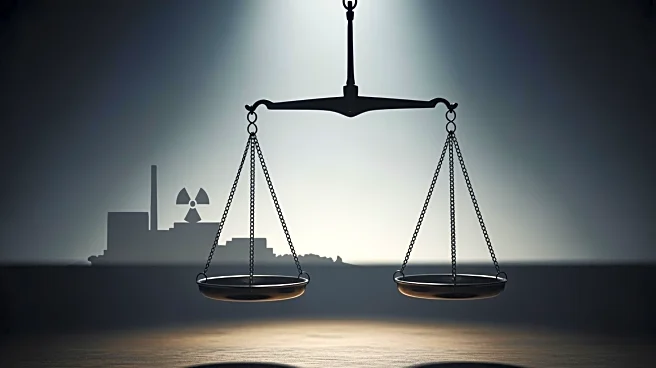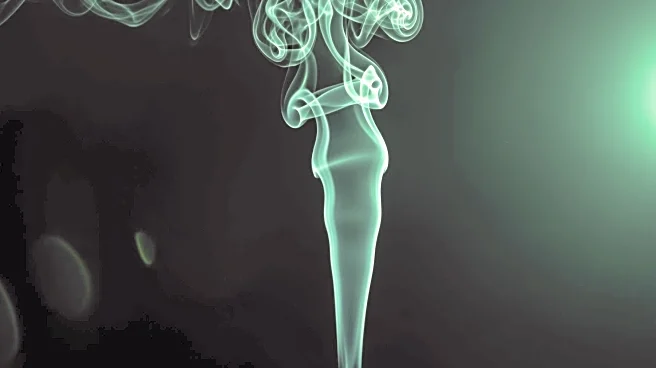What's Happening?
Ukraine is facing a significant wartime corruption scandal involving its state nuclear energy company, Energoatom. The National Anti-Corruption Bureau has uncovered a scheme involving kickbacks worth $100 million from contractors hired to build defenses
for Ukraine's energy infrastructure. Justice Minister German Galushenko, previously the energy minister, has been suspended amid the investigation. The scandal has led to the arrest of five individuals and the identification of seven other suspects, including a former business partner of President Volodymyr Zelenskyy, Tymur Mindich. Mindich, who co-owned Zelenskyy's production company, Kvartal 95, is alleged to have exploited his connections with the president.
Why It's Important?
The scandal comes at a critical time as Ukraine struggles to protect its energy infrastructure from Russian attacks, leading to frequent rolling blackouts. The involvement of high-level officials in corruption could undermine public morale and international support, especially as President Zelenskyy seeks financial aid from Western countries. The allegations against close associates of Zelenskyy could damage his reputation and pressure him to demonstrate accountability and transparency. The situation also risks reigniting criticism from international figures, including President Trump, who have accused Ukraine of corruption.
What's Next?
President Zelenskyy has expressed support for the investigations and emphasized the need for convictions. Anti-corruption activists are urging Zelenskyy to ensure the investigation proceeds without interference. The scandal could impact Ukraine's efforts to secure international support and aid, as well as its internal political stability. The investigation's progress and outcomes will be closely watched by both domestic and international stakeholders.
Beyond the Headlines
The scandal highlights the ongoing challenges of corruption in Ukraine, which has been a persistent issue despite efforts to reform. The involvement of high-level officials and close associates of the president underscores the need for robust anti-corruption measures and accountability. The situation also raises questions about the effectiveness of Ukraine's anti-corruption agencies and their ability to operate independently.
















